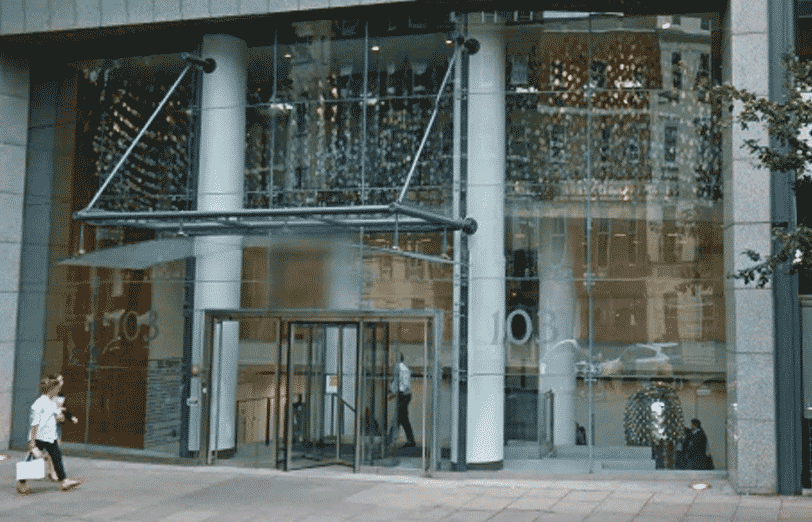The collapsed Parabis group went into administration owing almost £50m to more than 2,500 unsecured creditors, new documents have revealed.
A statement of administrator’s proposals shows the LLP owed unsecured creditors £31.5m when it went into administration in November last year. The limited company owed a further £16.1m to unsecured creditors.
The statement, prepared by Manchester insolvency firm AlixPartners, reveals that unsecured creditors - including law firms, barristers chambers and medical experts - will be repaid less than 2p in the pound.
Secured creditors, who are owed £73.4m from the group in total, are likely to receive £32.5m in return.
The 142-page document casts light on the dramatic collapse of one of the first alternative business structures to seek out private equity investment.
The statement confirms that private equity house Duke Street invested an initial £57m into the company, supplemented by a further £13m injected into the business in December 2014.
At its peak, the Parabis group employed more than 1,900 people in 31 locations across the UK.
But it suffered badly from reforms of the claims market and the failure to integrate new businesses that had been brought into the group.
The statement explains the Jackson reforms and a new fixed-fees regime for personal injury claims, both of which came into force in April 2013, reduced average revenue per case from £2,300 to £850.
Parabis had responded to the referral fee ban by establishing joint ventures with insurers Direct Line, RSA and Saga, but administrators noted the law firm enjoyed ‘little leverage’ with these partners and profits from claimant work fell from £250 per case to £50.
Crucially, the LLP failed to fully integrate its business acquisitions
Having sought to mitigate losses by moving into medical law reports, the company then suffered a £2.4m drop in profits when the government reduced fees for these reports and created a new independent panel for experts.
The administrators said a ‘significant’ volume of mergers and acquisitions were undertaken by the Parabis group in the last decade, with deals for Everatt & Co and Greenwoods in particular happening at the ‘height’ of the market.
‘Crucially, the LLP failed to fully integrate its business acquisitions,’ said the statement, with separate case management and accounting systems in use across the business.
‘Multiple systems created inefficiency and increased costs. The keys to managing fixed-fee work… of operational control, good data quality and the ability to leverage fee-earners, were all more difficult to achieve.’
Having moved into the insurance market, the group was then hit by two large insurers moving significant volumes of work elsewhere, leading to the departure of key fee-earners and reduced funds to cover the costs of maintaining the infrastructure of the business.
Management’s response to the downturn - which included profits falling throughout the last four years - was an ‘aggressive cost-reduction programme’ which saved around £13m a year.
Multiple systems created inefficiency and increased costs
But the assumptions made in December 2014, of a bright outlook based on future cashflow from claimant work-in-progress and improved volumes in the defendant business, proved to be ‘overly optimistic’, leaving a ‘severe’ funding gap.
By the time of the administration, the group had total group lending of £183m, including from Duke Street (£43.2m), Lloyds Bank (£16.7m), RBS (£8.8m) and asset-management platform Cross Ocean Partners (£20.6m).
AlixPartners began advisory work in October 2014, which was suspended after the second Duke Street investment, and was again engaged in May 2015 for a review of the cash forecasts.
In an attempt to ease cash pressures, a time-to-pay arrangement was sought from HM Revenue and Customs with regard to unpaid taxes, but due to previous failures to fulfil these arrangements, the request was denied.
Facing a funding shortfall and the potential risk of redundancy for 1,954 employees, AlixPartners secured a further £6m of funding, but Duke Street declined to invest any further.

It was deemed ‘unfeasible’ to sell the group as a whole and individual buyers were sought to acquire different elements of the business, although most of the arrangements were based on future value of outstanding case files.
Plexus Law Limited, led by one of the Parabis founders Andrew McDougall, purchased the defendant businesses formerly known as Plexus Law and Greenwoods, as well as consumer law division of Cogent Law and claims management vehicle Parabis Claims Solutions.
The value is likely to be £6.5m, with £2.25m paid upfront.
National firm Lyons Davidson bought some of the claimant division of Cogent Law and the Parabis joint venture with Saga Law in a deal estimated at £500,000.
The remainder of the Cogent Law business was sold to Merseyside firm Carpenters Law in an arrangement likely to be worth £3m.
The statement also explains that a sum of £3.7m is disputed between the limited company and Direct Line Insurance over entitlement to a share of profits from files transferred under an agreement dated October 2011.
As part of the outstanding ABS agreements, the LLP has agreed to pay Direct Line Group around £4m, to pay RSA £2.5m and to pay Saga £300,000.
The administrators confirmed they will conduct investigations into the conduct of the directors and partners and their transactions entered into prior to the insolvency process.
The administrators have a duty to file a document with the Department for Business, Innovation and Skills, stating whether they believe there are matters which might be considered ‘unfit conduct’.

















![David Lester (senior partner at Blythe Liggins), Darryl Barnes, Jagdeep Sandher (head of dispute resolution at Blythe Liggins)[4]](https://d1d8vslyhr7rdg.cloudfront.net/Pictures/274x183/4/2/8/116428_davidlesterseniorpartneratblytheligginsdarrylbarnesjagdeepsandherheadofdisputeresolutionatblytheliggins4_981603_crop.jpg)






37 Readers' comments